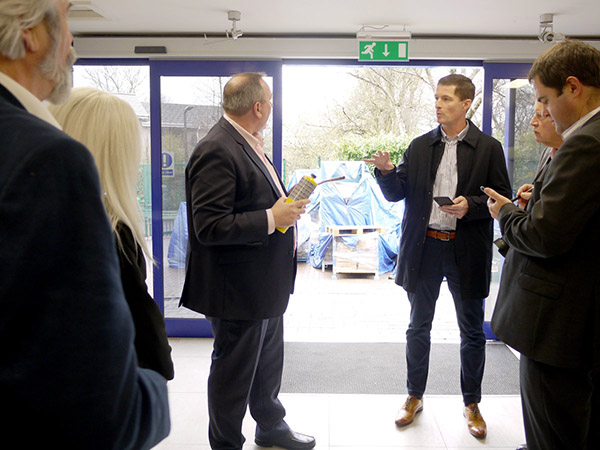Patience and trust are the name of the game

As we edge closer to the end of one of the most traumatic years we will have experienced in our lifetime, it’s time for reflection and to focus on what lies ahead. In the context of our business lives, it has been challenging and a sudden shock to the system. The majority of firms have withstood the prevailing market pressures to resemble some form of operational norm. The disruption the pandemic has caused, and is still causing, has allowed firms to consider what is important and key to business success.
The saving grace for the industry has been that the construction and home improvement sectors have been able to operate. Demand for home improvements has been ignited by high levels of consumer demand. Homeowners are living in their homes more than ever and want to improve them by utilising the money they have saved from not being able to go on foreign holidays for example. Data from Checkatrade is insightful and backs up this trend. The high levels of demand have put massive pressure on the supply chain. While this has proved a headache for many, there have been calls for patience and maybe a change in working practices at the installation end. Longer lead times aren’t necessarily a bad thing, and it could be time to educate homeowners that all good things come to those who wait that bit longer.
The crystal ball for 2021 is a very tricky one to evaluate. We can all hope order books remain reasonably full. It is important that we are focusing on the right areas to maximise sales. With consumer demand spiralling for increased light, space and security – fenestration products offer an easy solution. Specific product types that are witnessing spikes in consumer interest should not be ignored – even if your current product range is selling well. Solid roof conservatories, roof lanterns, smart locks, garden rooms, integral blinds, flush sash windows, automatic openings, coloured windows and doors are all experiencing significant market traction. It’s not just physical products that should be the sole focus. Methods and procedures surrounding sales and marketing activity have also been thrown into the spotlight.
For sales, the world has temporarily changed. Those involved in the digital space would make you believe that the digital revolution is here to stay. There is no doubt that digital technology has made more things possible. Remote selling has been an interesting and revolutionary proposition, and for some it will remain a key focus for their operation. Full advantage has been taken of social media – to the point where it has become an extremely competitive and cluttered environment. The big challenge is how do we create trust in the digital world? Sales teams want physical engagement, as a sales person told me recently: “I want to look into a customer’s eyes and gain their trust. Zoom is a fantastic tool – however I always ask someone ‘would you marry someone from a Zoom meeting?” – there is something missing – it’s human interaction and a level of trust.” Digital overload has been a consequence of the pandemic and there is a real desire for a return to more traditional sales and marketing interactions. Sitting in a customer’s living room interacting with the family pet, chatting in a meeting room, attending an exhibition or networking event and flicking through a magazine or brochure all adhere to the human need for physical engagement. There is a call for patience in so many aspects of our business lives, change is important for survival, but we must also remember not to ignore trusted methods that help to gain ‘trust’….
John Cowie – Editor









